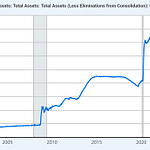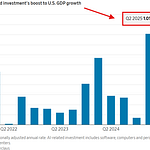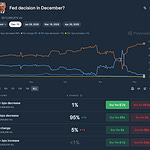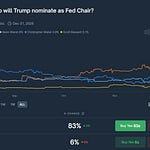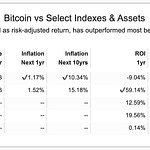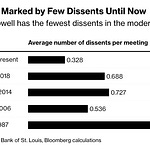This installment of The Pomp Letter is free for everyone. I send this email to our investors daily. If you would also like to receive it every morning, join the 50,000 other investors today.
To investors,
India’s Ministry of Electronics and Information Technology decided to ban more than 50 Chinese mobile apps from being used by Indian citizens. The move came as a response to violent conflict between India and China at their shared border. The banned list included many apps that I had never heard of, but it also included TikTok, which reportedly had 200 million users in India.
Timothy Bella of the Washington Post wrote that Indian officials believe TikTok and others “represented a threat to citizens’ privacy and national security. The agency noted it had received complaints that the apps were “stealing and surreptitiously transmitting users’ data” to servers outside the nation, an activity that, the ministry said, “ultimately impinges on the sovereignty and security of India.””
The threat posed by Chinese-owned technology has long been a concern in the United States as well. For example, the current presidential administration has labeled any technology products built by Huawei a security threat and they have banned any US firms from doing business with the communications firm. This is a really big deal because Huawei is the second largest smartphone manufacturer in the world, which means that it is even larger than Apple.
So where exactly is the concern about TikTok, Huawei, and other Chinese technology companies coming from?
According to Tim Bowler of the BBC, this all centers around China's 2017 National Intelligence Law, which stated that any Chinese company must "support, co-operate with and collaborate in national intelligence work.” The idea is that the Chinese government would avoid directly spying on non-Chinese users of these technologies, but rather they would compel the companies to do it themselves. In the case of Huawei, this could include anything from capturing private communications to denying service in a time of crisis. For TikTok, there have been rumors of everything from mass data collection to content being used to build a facial recognition database.
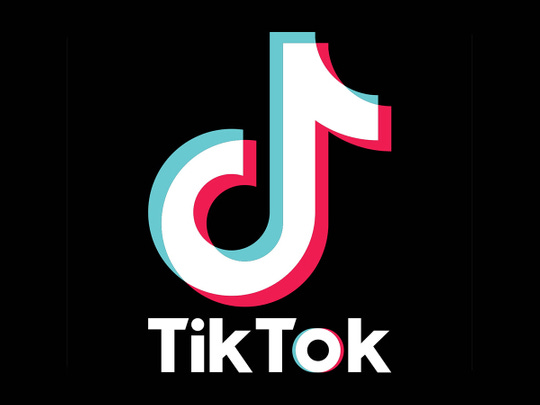
The entire situation is interesting because the facts are hard to come by, the stakes are incredibly high, and the US-China economic war isn’t helping to ease tensions at all. One thing that is clear though is that companies like TikTok have access to an incredible level of information.



If someone is collecting all this data and doing nothing with it, it begs the question of “why are you collecting it?” If someone is collecting all this data and using it for nefarious purposes, it begs the question of “why is this not already banned in the United States and elsewhere?”
Either way, India does not appear to be alone in their unilateral action to ban numerous Chinese mobile apps. US Secretary of State Mike Pompeo said yesterday that the US government is “looking at” banning TikTok and other mobile apps built by Chinese companies. He went on to say that you should only download TikTok if “if you want your private information in the hands of the Chinese Communist Party.”
This is a fairly strong position for him to take, especially given that no official decision has been made. Regardless of where the US government ends up on this issue, the writing is on the wall that we are moving towards a world of nationalized platforms. I don’t mean in the sense that national governments will own and control the platforms, but rather that entrepreneurs will be limited to putting their technology products in the hands of their country’s citizens and their allies.
We have previously seen this happen for competitive reasons, but never for national security reasons. There were hundreds of copycat versions of Facebook in various countries around the world as the social network began to rise in popularity over a decade ago. There was the Russian Facebook, the Indian Facebook, etc. Each copycat was trying to get ahead of Facebook’s global expansion and build a network effect that would force Facebook to lose in that market or have to purchase the nation-specific version.
This happened time and again with various companies. Uber, AirBnb, etc. History tells us that it very rarely worked and most times the original innovator was able to scale globally despite these copycats. I don’t think we will see the same results though if the obstacle is not copycats, but instead actual government bans on specific platforms.
When India banned the 58 Chinese mobile apps, US investors Balaji Srinivasan and Naval Ravikant immediately put the word out that they were looking to fund development of India-specific versions of the same applications.


The ramifications of this shift in development and new total addressable market will be felt for many years to come. First, companies will have much less growth potential in the future. TikTok boasts more than 1 billion users, but if it was a mobile app specific to the US-only, the total addressable market is 330 million Americans. The banning of TikTok in India also means that the company just lost 200 million users overnight.
Second, the financial impact follows the loss of users and addressable market. Facebook has reported 50% or more of their advertising revenue comes from international markets for example. If it was only available in the US, you are talking about a company losing 50% or more of the money it has to innovate, hire, and generally conduct business.
Lastly, technology has been an incredible net positive for the world. We have become more connected over the last 20 years, including the ability to meet new people, learn from each other, communicate, and gain exposure to different cultures, beliefs, and ways of life. This connectivity is ultimately a positive force on the world. If we go backwards and are forced to use nation-specific apps, we lose all of that progress and growth.
No one can tell what is going to happen in the future. My guess is that TikTok eventually gets banned in the United States (the US military already has as an example). There are likely to be other Chinese mobile apps that are caught in the firestorm as well. With this said, I don’t believe that we will see nation-specific applications being built. Instead, we are going to see the rise of two worlds — one led by the United States and one led by China.
These two worlds will gather allies based on economic trade requirements, political and social alignment, and potentially the need for military protection. Each will establish their own guidelines and acceptable rules regarding technology. They will both actively work to prevent their citizens from using technology created by a company from the other world (ex: China’s great firewall). It is unclear how strict these restrictions will actually be, along with whether they will be equally applied to social media apps and communication infrastructure.
It will be a weird world for us to move towards. The weaponization of non-violent technologies has been happening for decades, but the difference today is that every private citizen is walking around with the technology in their pocket. The sci-fi movies you grew up watching normally painted a picture of the surveillance state and they appear to be more accurate with each passing day.
The question I will leave you with though is this — aren’t we just being forced to choose between whether we want to be surveilled by our governments or our government’s enemies?
-Pomp
This installment of The Pomp Letter is free for everyone. I send this email to our investors daily. If you would also like to receive it every morning, join the 50,000 other investors today.
THE RUNDOWN:
Palantir Has Confidentially Filed For an IPO: Secretive big data and analytics startup Palantir, co-founded by Peter Thiel, said late Monday it has confidentially filed paperwork with the U.S. Securities and Exchange Commission to go public. Its statement said little more. “The public listing is expected to take place after the SEC completes its review process, subject to market and other conditions.” Read more.
Trump Administration Releases List of Companies That Received Most Money from PPP Loans: The Trump administration on Monday disclosed the names of many small businesses which received loans under a program intended to blunt the economic damage from the coronavirus pandemic. Those loans represent nearly three-fourths of total loan dollars approved, but a far smaller proportion of the number of actual loans. About 87% of the loans were for less than $150,000, according to the SBA. Read more.
Sequoia announces $1.35 billion venture and growth funds for India and Southeast Asia: Sequoia Capital India on Monday announced it has secured $1.35 billion from LPs for two new funds as the storied venture firm looks to ramp up its investments in the world’s second-largest internet market and Southeast Asia. The two new funds — a $525 million venture fund and a $825 million growth fund — will help the VC firm, which operates in India and Southeast Asia through one arm, more comprehensively serve the startup ecosystem in the region, said Shailendra Singh, a managing director at Sequoia Capital India. Read more.
Elon Musk Reveals '$69.420' Tesla Short Shorts: Tesla has launched limited-edition short shorts costing "$69.420," CEO Elon Musk revealed in a tweet on Sunday. As of Monday morning, the red satin hot pants are already sold out. Musk, who has joked about selling short shorts before, appeared to be taking a jab at short sellers and investors who bet against Tesla. Read more.
IPOs Are ‘Really Not Worth It’ Says Tim Draper: Tim Draper, a famous American venture capitalist and serial cryptocurrency investor, believes that initial public offerings, or IPOs, are not the best source of funding for industry firms. The billionaire investor joined the Unitize conference on July 6 to talk about investing in early stage blockchain startups.Read more.

LISTEN TO THIS EPISODE OF THE POMP PODCAST HERE
Jon ‘DRJ’ Najarian was a linebacker for the Chicago Bears before he turned to another kind of contact sport – trading on the Chicago Board Options Exchange. He became a member of the CBOE, NYSE, CME and CBOT and worked as a floor trader for some 25 years. He built and sold a number of companies, including a $750 million exit to E*TRADE in September 2016. This episode was a ton of fun to record and I think you will learn a lot from it.
In this conversation, Jon and I discuss:
The physicality of the old school trading pits
How Wall Street has evolved over the years
Robinhood
Davey Day Trader
Why Jon and his brother are building a company to educate investors
How much of his portfolio is currently in Bitcoin
I really enjoyed this conversation with Jon. Hopefully you enjoy it too.
LISTEN TO THIS EPISODE OF THE POMP PODCAST HERE
We have started a new show exclusive to YouTube called Lunch Money. The goal is to cover current events in business, finance, and technology from the perspective of the every day citizen, rather than the talking heads on television. It is just as funny and entertaining as it is educational. Hope you enjoy it and make sure you go subscribe to the YouTube channel!
Podcast Sponsors
These companies make the podcast possible, so go check them out and thank them for their support!
Choice is a new self-directed IRA product that allows you to buy Bitcoin with tax-advantaged dollars, while still holding your private keys. You can go to retirewithchoice.com/pomp to sign up today.
Helium Hotspots allow you to earn cryptocurrency by building a new wireless network for the Internet of Things and creating a more connected future in your city. Get $50 off your Helium Hotspot by going to helium.com and using my special code POMP at checkout.
Unstoppable Domains is working to make the internet operate how it was originally intended, which means anyone can publish anything from anywhere. You can go to unstoppabledomains.com and claim your censorship resistant domain today.
BlockFi allows you to keep your crypto, put it up as collateral, and receive a USD loan funded directly to your bank account. They do loans ranging from $2,000 to $10,000,000, and they're perfect for helping you reach your financial goals of all sizes. Visit BlockFi.com/Pomp to learn more about putting your crypto to work without having to sell it by getting a loan or earning interest in their interest bearing accounts.
Crypto.com allows you to buy, sell, store, earn, loan, and invest various cryptocurrencies in an user friendly mobile app. Join over one million users today. You can download and earn $50 USD with my code “pomp2020” when you sign up for one of their metal cards today.
Blockset by BRD is your hosted blockchain infrastructure. Blockset enables enterprises and developers around the globe to deliver high-quality blockchain-based applications in a fraction of the time, at a fraction of the cost.
If you enjoy reading “The Pomp Letter,” click here to tweet to tell others about it.
Nothing in this email is intended to serve as financial advice. Do your own research.



